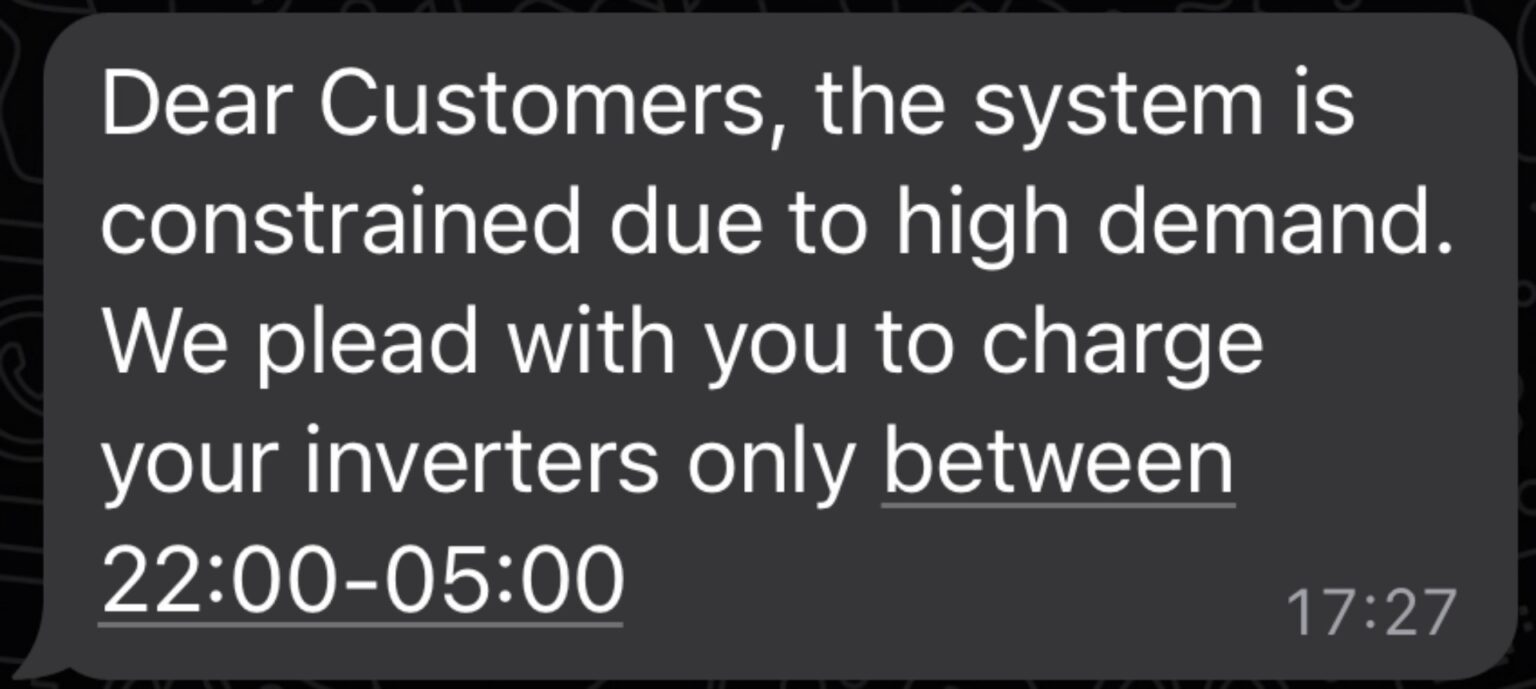- In recent days, some South African homeowners have received texts from Eskom regarding use of their inverters.
- The power utility is asking homeowners to not charge their inverters during peak loadshedding hours.
- How Eskom came to know which homeowners have inverters, and which do not, remains unclear.
In recent days, text messages have been sent to homeowners with inverters asking them not to charge said backup power solutions during peak loadshedding hours.
The texts reportedly come from Eskom, although the power utility has not officially made mention of issuing such communications with South African homeowners at the time of writing.
The message, featured below too, asks homeowners to only charge their inverters between 22:00 in the evening and 05:00 in the morning.
“Dear Customers, the system is constrained due to high demand. We plead with you to charge your inverters only between 22:00-05:00,” the text shared with Hypertext outlines.

With Eskom currently implementing a mix of Stage 3 and Stage 4 loadshedding for the coming week, homeowners with inverters are now being asked not to charge their units during the higher level of loadshedding, which will be in place between 16:00 until 05:00.
For now, this remains a “friendly” request, as Eskom does not have the purview to restrict any usage of inverters in the country.
#PowerAlert1
— Eskom Hld SOC Ltd (@Eskom_SA) September 10, 2023
Stage 4 loadshedding will be implemented from 16:00 today until 05:00 on Monday. Thereafter, Stage 3 loadshedding will be implemented from 5:00 until 16:00. pic.twitter.com/LmlMHMMlGb
In recent months, the power utility and other energy-related regulators are taking a closer look at the backup power solutions that South Africans have been forced to turn to. Thankfully though, we have seen a number of financial institutions step up to the plate in order to assist with more favourable financing options for people to invest in solutions like solar.
Perhaps of more concern, however, is how Eskom was able to accurately communicate with a homeowner regarding their inverter, especially as the texts do not appear to be part of a mass messaging campaign of any kind.
Either way, it looks like inverters may soon become the next topic of discussion as the country’s energy crisis persists.

